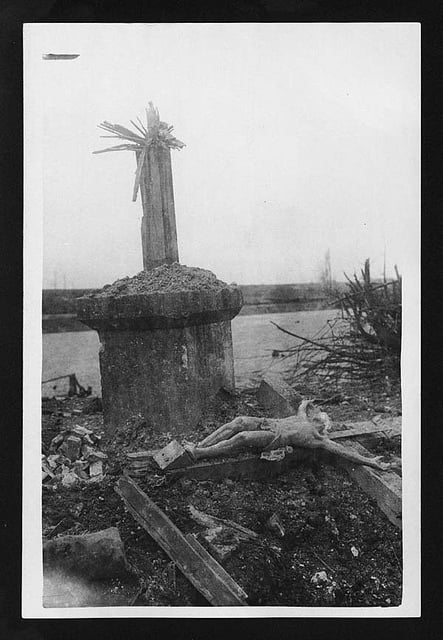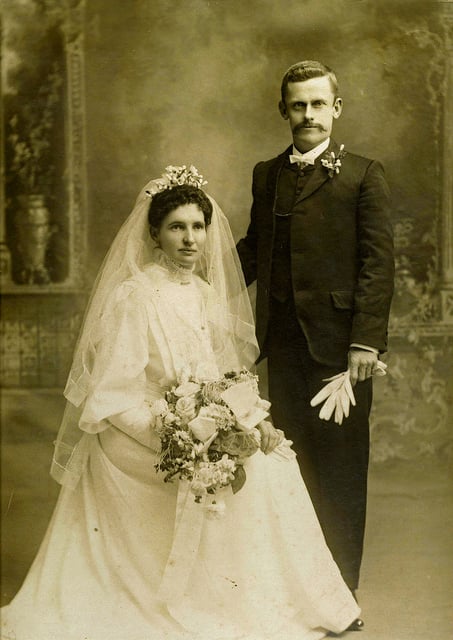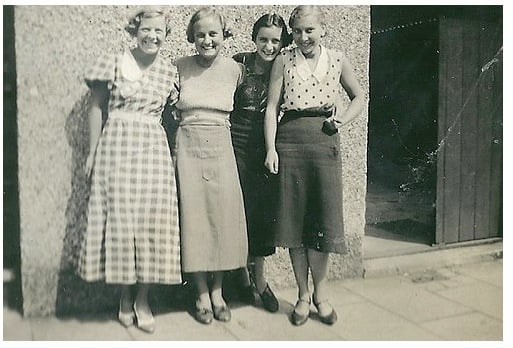Theodore Savage (14)
By:
June 10, 2013

HILOBROW is pleased to present the fourteenth installment of our serialization of Cicely Hamilton’s Theodore Savage (also known as Lest Ye Die). New installments will appear each Monday for 25 weeks.
When war breaks out in Europe — war which aims successfully to displace entire populations — British civilization collapses utterly and overnight. The ironically named Theodore Savage, an educated and dissatisfied idler, must learn to survive by his wits in the new England, where 20th-century science, technology, and culture are regarded with superstitious awe and terror.
The book — by a writer best known today for her suffragist plays, treatises, and activism — was published in 1922. In September 2013, HiLoBooks will publish it in a gorgeous paperback edition, with an Introduction by Gary Panter.
SUBSCRIBE to HILOBROW’s serialized fiction via RSS.
ALL EXCERPTS: 1 | 2 | 3 | 4 | 5 | 6 | 7 | 8 | 9 | 10 | 11 | 12 | 13 | 14 | 15 | 16 | 17 | 18 | 19 | 20 | 21 | 22 | 23 | 24 | 25
With her arm in his — with her body pressed close enough to feel her quickened breathing — he sat and stared into the fire; and at the last, when the inevitable was about to accomplish itself, there floated into his mental vision the delicate memory of the woman whom once he had desired. Phillida, a shadow impossible, leaned out of a vanished existence as the Damosel leaned out of Heaven; and he looked with his civilized, his artist’s eyes on the woman who was his for the taking…. Ada felt that he slackened his hold on her arm, felt him shrink a little from the pressure of her leaning shoulder.
“What is it?” she asked — uneasy; and perhaps it was the sound of her familiar voice that brought him back to primitive realities. The glow of the fire and the over-arching vault of darkness; and beneath it two creatures, male and female, alone with nature, subject only to the laws of her instinct…. The vision of a dead world, a dead woman, faded and he looked no more through the fastidious eyes of the civilized.

Man civilized is various, divided from his kind by many barriers — of taste, of speech, of habit of mind and breeding; man living as the brute is cut to one pattern, the pattern of his simple needs and lusts…. The warm shoulder pressed him and he drew it the closer; he was man in a world of much labour and instinct — who sweated through the seasons and wearied. Whose pains were of the body, whose pleasures of the body… and alone in the night with a mate.
‘’Ere, what’s that for?” she asked, making semblance of protest, as his hand went round her head and he pressed her cheek against his lips.
He said “You!”… and laughed oddly again.
They settled down swiftly and prosaically into a married state which entailed no immediate alteration — save one — in life as they had hitherto shared it. Matrimony shorn of rings and a previous engagement, shorn of ceremony, honeymoon, change of residence and comments of friends, revealed itself as a curiously simple undertaking and, by its very simplicity, disappointing — so far at least as Ada was concerned.
Her conscience, in the matter of legal and religious observance, was not unduly tender, and her embryo scruples concerning the absence of legal or religious sanction to their union were easily allayed by her husband’s assurance that they were as truly married as it was possible to be in a world without churches or registrars. What she missed far more than certificate or blessing was the paraphernalia and accompanying circumstance of the wedding, to which she had always looked forward as the culminating point of her existence; her veil, her bouquet, her bevy of bridesmaids, her importance!… When she sat with her back against a tree-trunk, listlessly unobservant of the play of dappled sunlight or the tracery of leafage, she would crave in the shallows of her disappointed heart for the gaudy little sitting-room that should have been her newly-married dwelling; contrasting its impossible and non-existent splendours with the ramshackle roof-tree under which she took shelter from the weather. The gaudy, tasteless, stuffy little room wherein she should have set out her wedding presents, displayed her photos and done honours of possession to her friends…. That was matrimony as she understood it; enhanced importance, display of her matronly dignity. And instead, a marriage that aroused no envy, called forth no jests, affected none but the partners to the bond; in the unchanged discomfort of unchanged surroundings — wherein, being crowd-bred, she could see little beauty and no meaning; in the frequent loneliness and silence abhorrent to her noise-loving soul; with the evening companionship of a wearied man to whom her wifehood meant no more than a physical relation.
Theodore, being male, was not troubled by her abstract longings for the minor dignities of matrimony — and,expecting little from his married life, it could not bring him disillusion. Ada might have fancied that what stirred in her was love; he had always known himself moved by a physical instinct only. Thus of the pair he was the less to be pitied when the increased familiarity of their life in common brought its necessary trouble in the shape of friction — revealing the extent of their unlikeness and even, with time, their antagonism. One of the results of her vague but ever-present sense of grievance, her lasting homesickness for a world that had crumbled, was a lack of interest in the world as it was and a reluctance to adapt herself to an environment altogether hateful; hence, on Theodore’s side, a justified annoyance at her continued want of resource and the burdensome stupidity which threw extra labour on himself.

She was a thoroughly helpless woman; helpless after the fashion of the town-bred specialist, the product of division of labour. The country, to her, was a district to drive through in a char-a-banc with convenient halts at public-houses. Having lived all her days as the member of a crowd, she was a creature incomplete and undeveloped; she had schooled with a crowd and worked with it, shared its noise and its ready-made pleasures; it is possible that, till red ruin came, she had conceived of no other existence…. Leaving school, she had entered a string factory where she pocketed a fairly comfortable wage in return for the daily and yearly manipulation of a machine devoted to the production of a finer variety of twine. Having learned to handle the machine with ease, life had no more to offer her in the way of education, and development came to a standstill. Her meals, for the most part, she obtained without trouble from factory canteens, cheap restaurants or municipal kitchens; thus her domestic duties were few — the daily smearing of a bedroom (frequently omitted) and the occasional cobbling of a garment, bought ready-made. Her reading, since her schooldays, had consisted of novelettes only, and even to these she was not greatly addicted, preferring, asa rule, a more companionable form of amusement — a party to the pictures, gossip with her girl-friends and flirtations more or less open. At twenty-three (when disaster came) she was a buxom, useless and noisy young woman — good-natured, with the brain of a hen; incapable alike of boiling a potato or feeling an interest in any subject that did not concern her directly.
There were moments when she irritated Theodore intensely by her infantile helplessness and the blunders that resulted therefrom, by her owlish stupidity in the face of the new and unfamiliar. And there were moments when, for that very owlishness, he pitied her with equal intensity, realizing that his own loss, his daily wretchedness, was a small thing indeed beside hers. The ruin of a world could not rob him utterly of his heritage of all the ages; part of that heritage no ruin could touch, since he had treasure stored in his heart and brain for so long as his memory should last. But for Ada, whose world had been a world of cheap finery, of giggling gossip and evenings at the cinema, there remained from the ages — nothing. Gossip and cinemas, flowered hats and ribbon-trimmed camisoles — they had left not a wrack, save regret, for her mind to feed on…. As the workings of her vacant little soul were laid bare to him, he understood how dreadful was its plight; how pitiably complete must be the blankness of a life such as hers, bereft of the daily little personal interests wherein had been summed up a world. She — unhandy, unresourceful, superficial — was one of the natural and inevitable products of a mechanical civilization; which, in saving her trouble, had stunted her, interposing itself between primary cause and effect. Bread, to her, was food bought at a counter — not grown with labour in a field; the result not of rain, sun and furrow, but of sixpence handed to a tradesman. And cunning men of science had wrestled with the forces of nature that she might drop a penny in the slot for warmth or suck sweets with her “boy” at the pictures.
He guessed her a creature who had always lived noisily, a babbler whom even his fits of taciturnity would not have daunted had she found much to babble of in the lonely world she shared with him; but, bewildered and awed by it, oppressed by its silence, she found meagre subject-matter for the very small talk which was her only method of expression. Under the peace and vastness of the open sky she was homesick for a life that excluded all vastness and peace; her sorrow’s crown of sorrow was a helpless, incessant craving for little meaningless noises and little personal excitements…. Sometimes, at night, as they sat by the fire, he would see her face pathetic in its blank dreariness; her eyes wandering from the glow of the fire to the darkness beyond it and back from the darkness to the glow. Endeavouring (or so he imagined) to piece together some form of inner life from fragmentary memories of past inanity and aimless, ephemeral happenings!
The sight often moved him to pity; but he cast about in vain for a means of allaying her sodden and persistent discontent. Once or twice he attempted to awaken her interest by explaining, as he would have explained to a child, the movements of nightly familiar stars, the habits of birds or the process of growth in vegetation. These things, as he took care to point out, now concerned her directly, were part of the round of her existence; but the fact had no power to stimulate a mind which had been accustomed to accept, without interest or inquiry, the marvels of mechanical science. She carried over into her new life the same lack of curiosity which had characterized her dealings with the old; she was no more alive to the present phenomena of the open field than to the past phenomena of the electric switch, the petrol-engine or the gas-meter…. And the workings of the gas-meter at least had been pleasant — while the workings of raw nature repelled her. Thus Theodore’s only reward for his attempt at education was a bored, inattentive remark, to the effect that she had heard her teacher say something like that at school.

She had all the crowd-liver’s horror of her own company; strengthened, in her case, by dislike of her surroundings, amounting to abhorrence, and the abiding nervousness that was a natural after-effect of the days when she had fled from her fellows and cowered to the earth in an abject and animal terror. Her unwillingness to let Theodore out of her sight was comprehensible enough, if irritating; but there were times when it was more than irritating — a difficulty added to life. It was impossible to apportion satisfactorily a daily toil that, if Ada had her way, must always be performed in company; while her customary fellowship on his hunting and snaring expeditions meant not only the presence of a clumsy idler but the dying down of a neglected log-fire and the postponement of all preparations for a meal until after their return to camp. Further, it was a bar to that wider exploration of the neighbourhood which, as time went on, he desired increasingly; confining him, except on comparatively rare occasions, to such range from his hearthstone as could be attained in the company of Ada. So long as he attributed it to the workings of fear only, he was hopeful that, with time, her abhorrence of loneliness might pass; but as the months went by he realized that it was not only fear that kept her close to his heels — her town-bred incapacity to interest or occupy herself.
Once — when the call of the outside world grew louder — he proposed to Ada that he should see her well provided with a store of food and fuel and leave her for two or three days; hoping to tempt her to agreement by pointing out the probability, amounting to certainty, that other survivors of disaster must be dwelling somewhere within reach. Peaceable survivors with whom they could join forces with advantage…. Her face lit up for a moment at the idea of other men’s company; but when she understood that he proposed to go alone, her terror at the idea of being left was abject and manifest. She was afraid of everything and anything; of ghosts, of darkness, of prowling men, of spiders and possible snakes; and, having reasoned in vain, in the end he gave her the assurance she clamoured for — that she should not be called on to suffer the agony of a night by herself.
He gave her the promise in sheer pity, but regretted it as soon as made. He had set his heart on a journey in search of the world that gave no sign, planning to undertake it before the days grew shorter ; but he did not disguise from himself that there might still be danger in the expedition — which Ada’s hampering presence would increase. The project was abandoned for the time being, in the hope that she would see reason later; but he regretted his promise and weakness the more when he found that Ada did not trust to his word and, fearing lest he gave her the slip, now clung to him as closely as his shadow. Her suspicion and stupidity annoyed him; and there were times when he was ashamed of his own irritation when he saw her trotting, like a dog, at his heels or squatting within eyeshot of his movements. He was conscious of a longing to slap her silly face, and more than once he spoke sharply to her, urged her to go home; whereupon she sulked or cried, but continued her trotting and squatting.
RADIUM AGE SCIENCE FICTION: “Radium Age” is HILOBROW’s name for the 1904–33 era, which saw the discovery of radioactivity, the revelation that matter itself is constantly in movement — a fitting metaphor for the first decades of the 20th century, during which old scientific, religious, political, and social certainties were shattered. This era also saw the publication of genre-shattering writing by Edgar Rice Burroughs, Sax Rohmer, E.E. “Doc” Smith, Jack London, Arthur Conan Doyle, Aldous Huxley, Olaf Stapledon, Karel Čapek, H.P. Lovecraft, Charlotte Perkins Gilman, Yevgeny Zamyatin, Philip Gordon Wylie, and other pioneers of post-Verne/Wells, pre-Golden Age “science fiction.” More info here.
HILOBOOKS: The mission of HiLoBooks is to serialize novels on HiLobrow; and also, as of 2012, operating as an imprint of Richard Nash’s Cursor, to reissue Radium Age science fiction in beautiful new print editions. So far, we have published Jack London’s The Scarlet Plague, Rudyard Kipling’s With the Night Mail (and “As Easy as A.B.C.”), Arthur Conan Doyle’s The Poison Belt, H. Rider Haggard’s When the World Shook, Edward Shanks’s The People of the Ruins, William Hope Hodgson’s The Night Land, and J.D. Beresford’s Goslings. Forthcoming: E.V. Odle’s The Clockwork Man, Cicely Hamilton’s Theodore Savage, and Muriel Jaeger’s The Man with Six Senses. For more information, visit the HiLoBooks homepage.
SERIALIZED BY HILOBOOKS: Richard Connell’s “The Most Dangerous Game” | Jack London’s The Scarlet Plague | Rudyard Kipling’s With the Night Mail (and “As Easy as A.B.C.”) | Arthur Conan Doyle’s The Poison Belt | H. Rider Haggard’s When the World Shook | serialized between March and August 2012; Edward Shanks’ The People of the Ruins, serialized between May and September 2012; William Hope Hodgson’s The Night Land, serialized between June and December 2012; J.D. Beresford’s Goslings, serialized between September 2012 and May 2013; and Cicely Hamilton’s Theodore Savage, serialized between March and August 2013.
